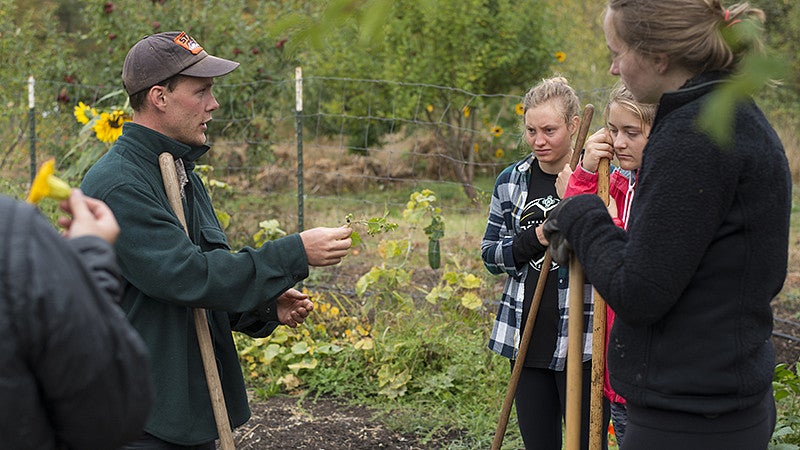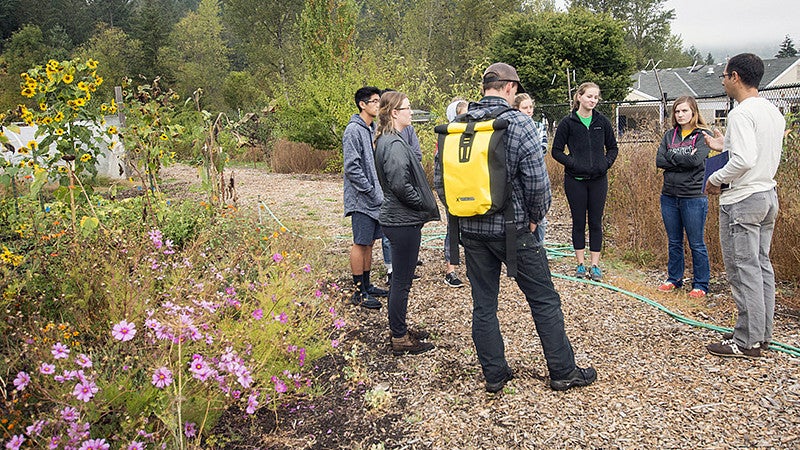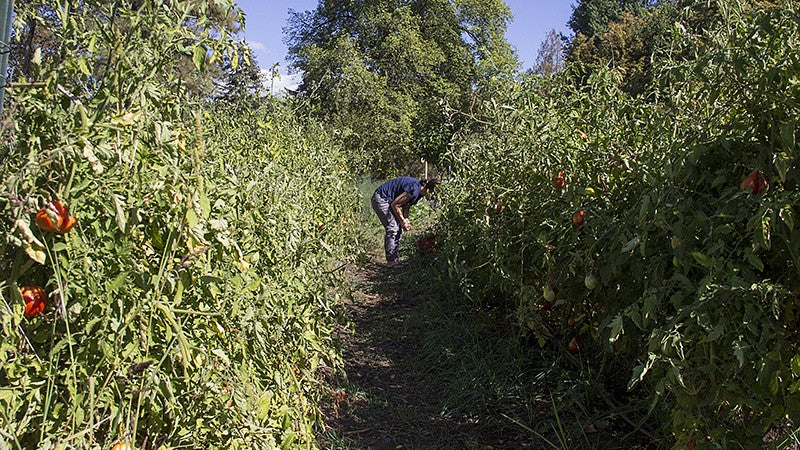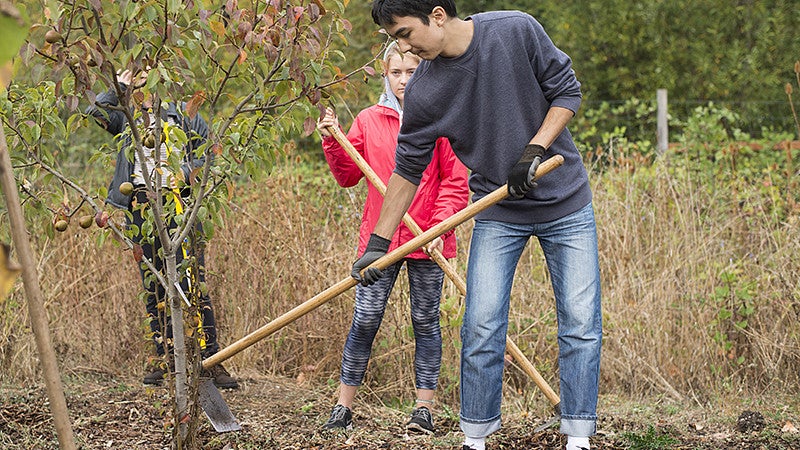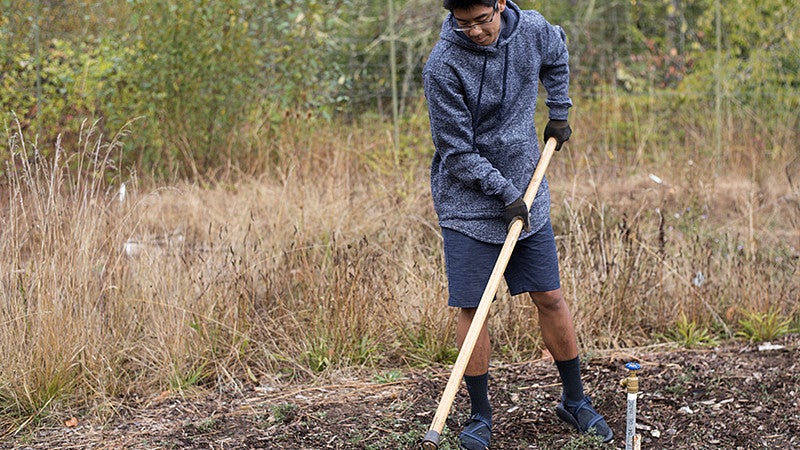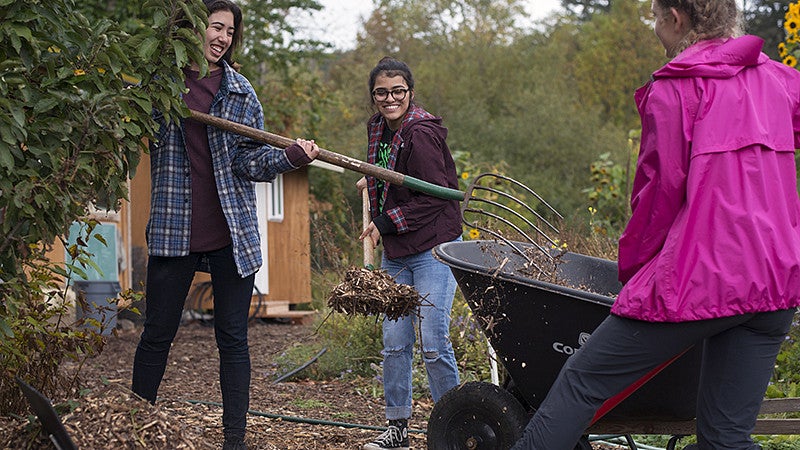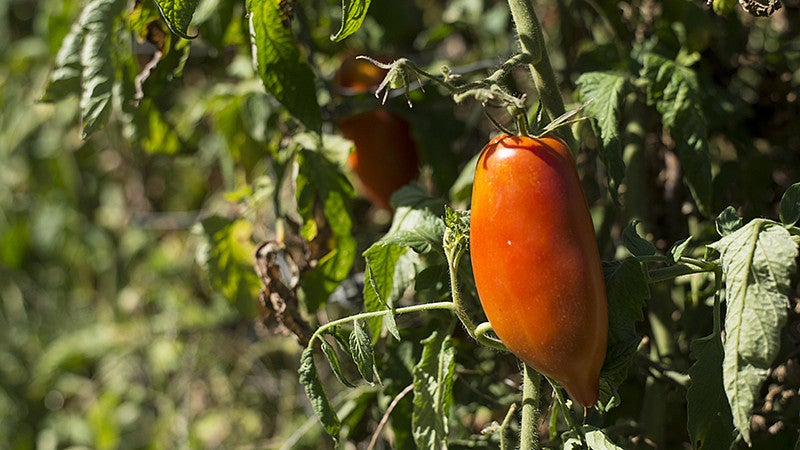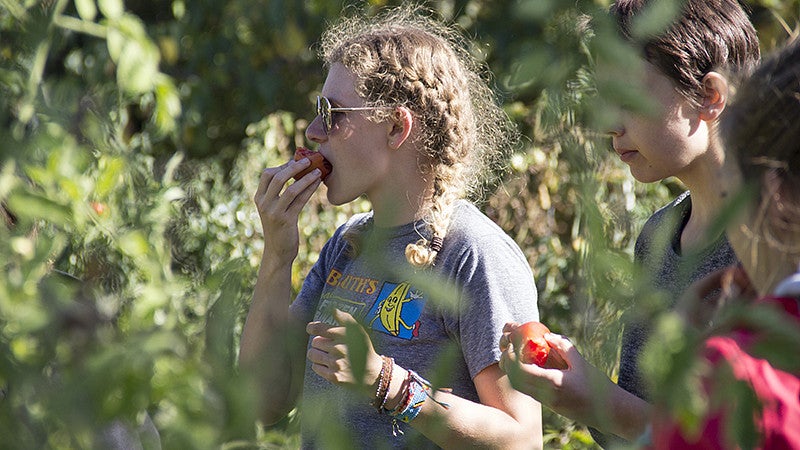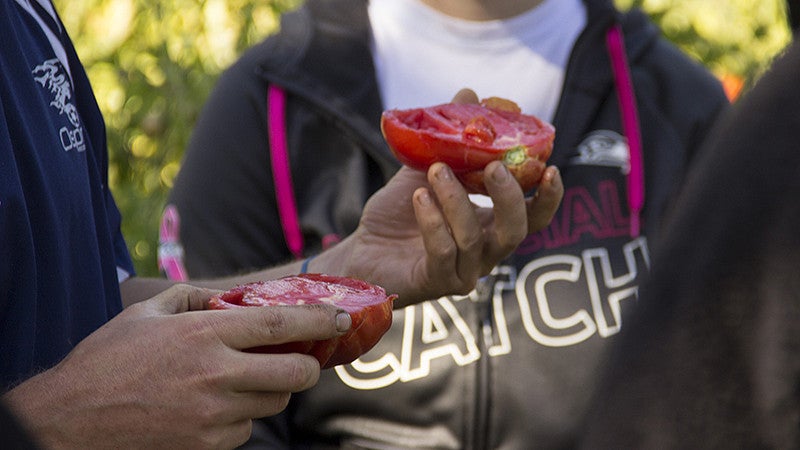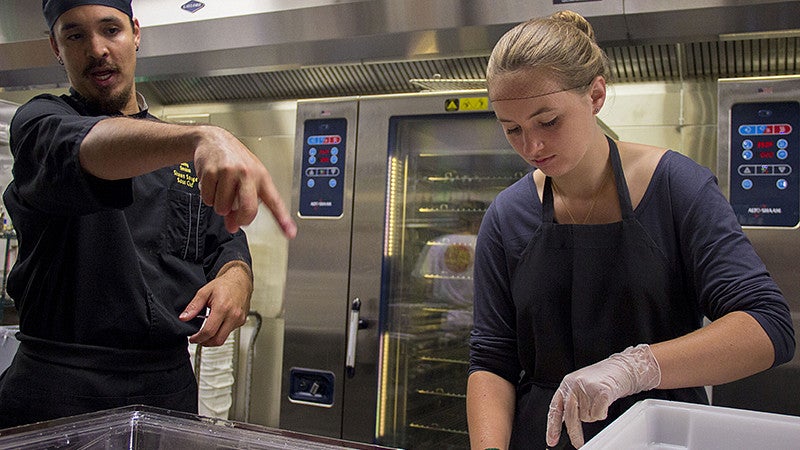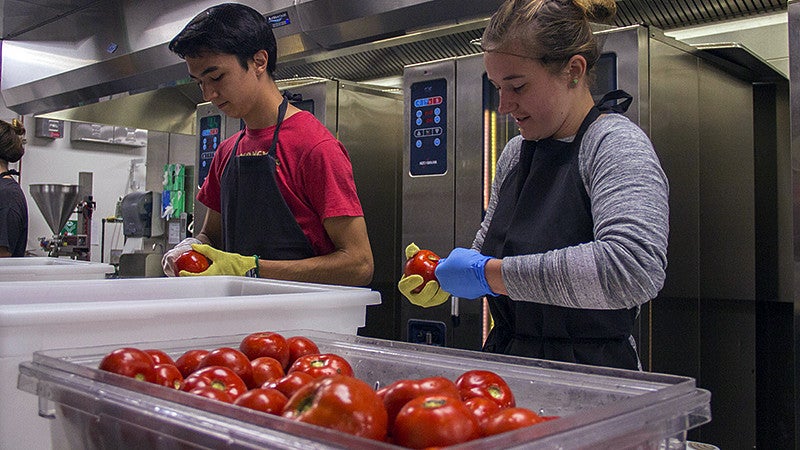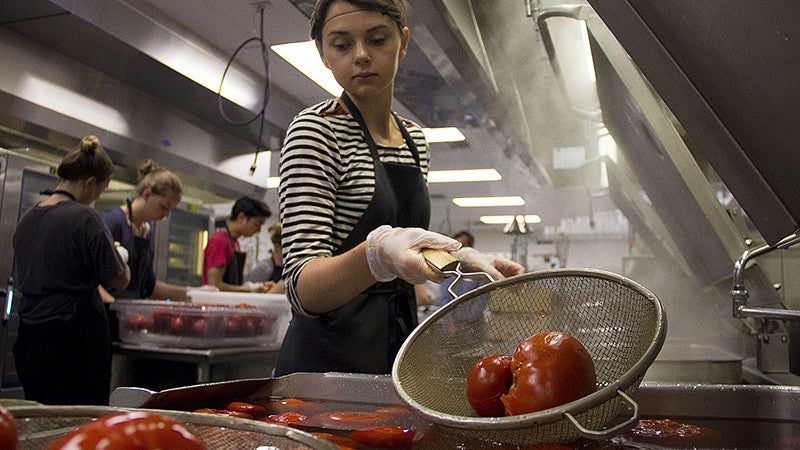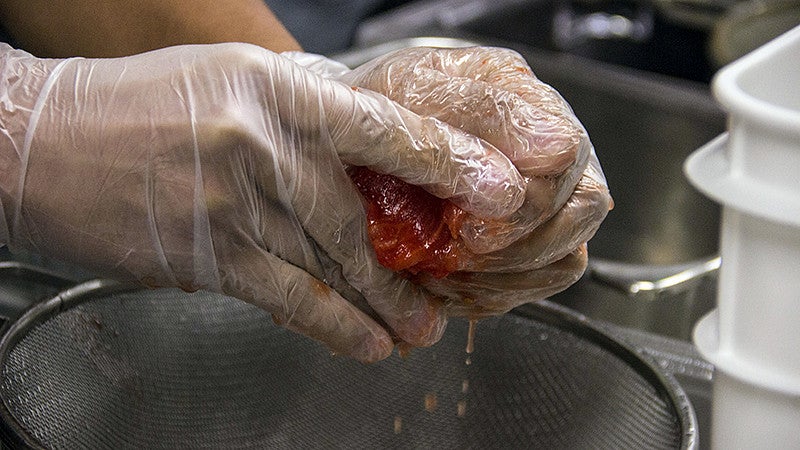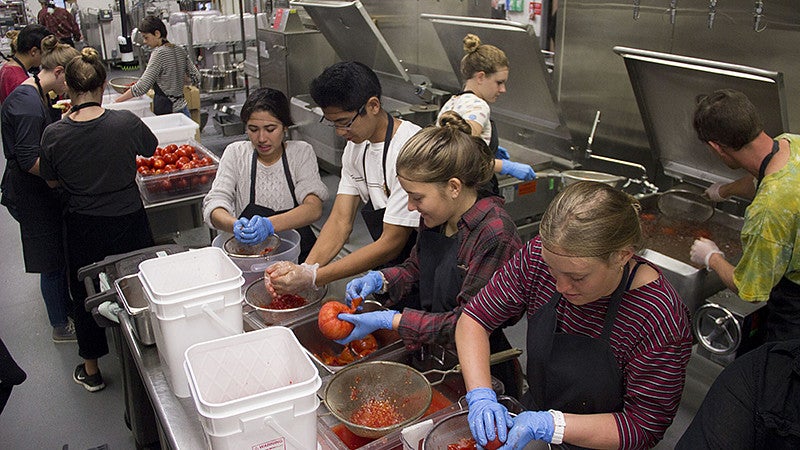Project Tomato
1,000 pounds local tomatoes
9 cups chopped garlic
9 cups dry basil
132 cups tomato paste
14 ¼ cups kosher salt
Directions: Visit farm and pick tomatoes. Rinse and core, blanch in hot water, shock in cold water, peel and de-seed. Add additional ingredients and puree.
To make at home: Use 10 pounds freshly picked tomatoes, 1.5 tablespoons of both garlic and dry basil, two six-ounce cans tomato paste and two tablespoons kosher salt. Makes about a gallon. Freeze any leftovers.


